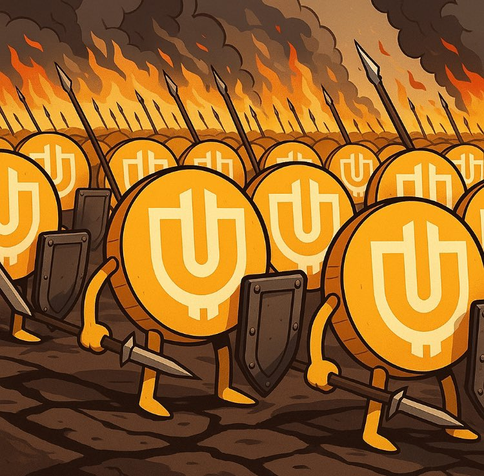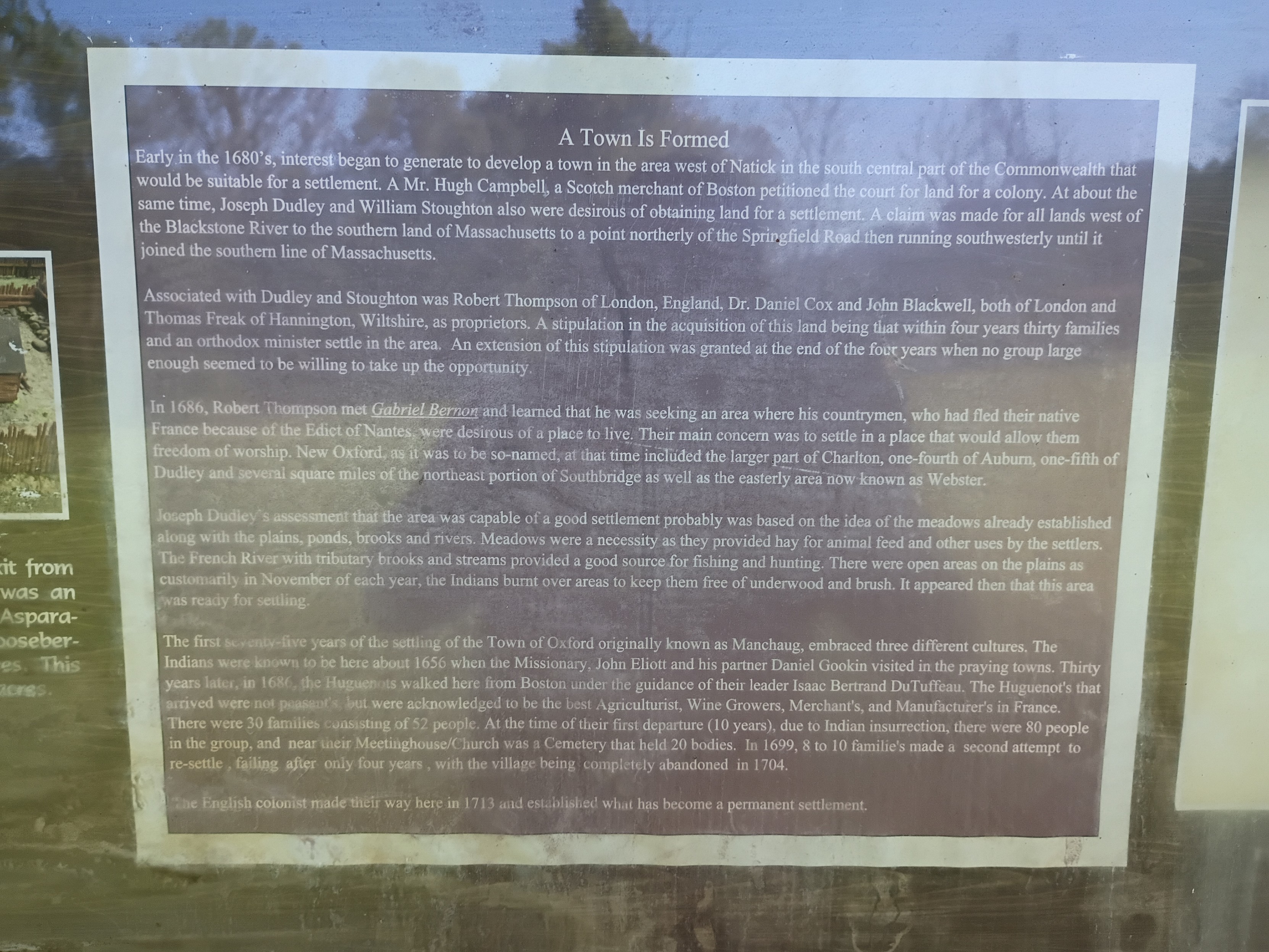2025-06-05 19:29:43
2025-06-06 21:30:00
Hundreds die after flash floods tear through Nigerian market town https://news.mongabay.com/short-article/2025/06/hundreds-die-after-flash-floods-tear-through-nigerian-market-town/
2025-06-05 15:58:32
2025-07-05 15:50:40
❝Cloudflare, along with a majority of the world's leading publishers and AI companies, is changing the default to block AI crawlers unless they pay creators for their content.❞
Oh!
❝But that's just the beginning. Next, we'll work on a marketplace where content creators and AI companies, large and small, can come together.❞
Oh.
First quote sounds like a strike. Second quote sounds more like a company trying to situate itself as an unavoidable middle player who can control both sides of a market.
https://mastodon.acm.org/@avandeursen/114799313365332691
2025-06-06 20:55:54
Virtual chronic care company Omada Health closed up 21% in its Nasdaq debut after raising about $150M in its IPO, valuing the company at just over $1B (Ashley Capoot/CNBC)
https://www.cnbc.com/2025/06/06/omada-shares-open-at-23-in-na…
2025-07-06 18:34:54
Really cool video about why the video games industry is struggling: everybody has to compete with addictive social media for eyeballs and time. And unless whole new markets are opened up (humans are not born quickly enough) there's just no longer a way to create exponential growth. But billionaire investors need that. That's why they are rather investing in AI.
By the way, this is the same reason that cinemas have gotten in trouble (and now even streaming services...)
2025-07-02 15:30:43
📉 Token That’s Literally USELESS Is Crypto’s Latest Meme Cult
https://www.coindesk.com/markets/2025/06/18/token-that-s-literally-useless-is-crypto-s-latest-meme-cult
2025-07-04 20:14:31
Long; central Massachusetts colonial history
Today on a whim I visited a site in Massachusetts marked as "Huguenot Fort Ruins" on OpenStreetMaps. I drove out with my 4-year-old through increasingly rural central Massachusetts forests & fields to end up on a narrow street near the top of a hill beside a small field. The neighboring houses had huge lawns, some with tractors.
Appropriately for this day and this moment in history, the history of the site turns out to be a microcosm of America. Across the field beyond a cross-shaped stone memorial stood an info board with a few diagrams and some text. The text of the main sign (including typos/misspellings) read:
"""
Town Is Formed
Early in the 1680's, interest began to generate to develop a town in the area west of Natick in the south central part of the Commonwealth that would be suitable for a settlement. A Mr. Hugh Campbell, a Scotch merchant of Boston petitioned the court for land for a colony. At about the same time, Joseph Dudley and William Stoughton also were desirous of obtaining land for a settlement. A claim was made for all lands west of the Blackstone River to the southern land of Massachusetts to a point northerly of the Springfield Road then running southwesterly until it joined the southern line of Massachusetts.
Associated with Dudley and Stoughton was Robert Thompson of London, England, Dr. Daniel Cox and John Blackwell, both of London and Thomas Freak of Hannington, Wiltshire, as proprietors. A stipulation in the acquisition of this land being that within four years thirty families and an orthodox minister settle in the area. An extension of this stipulation was granted at the end of the four years when no group large enough seemed to be willing to take up the opportunity.
In 1686, Robert Thompson met Gabriel Bernor and learned that he was seeking an area where his countrymen, who had fled their native France because of the Edict of Nantes, were desirous of a place to live. Their main concern was to settle in a place that would allow them freedom of worship. New Oxford, as it was the so-named, at that time included the larger part of Charlton, one-fourth of Auburn, one-fifth of Dudley and several square miles of the northeast portion of Southbridge as well as the easterly ares now known as Webster.
Joseph Dudley's assessment that the area was capable of a good settlement probably was based on the idea of the meadows already established along with the plains, ponds, brooks and rivers. Meadows were a necessity as they provided hay for animal feed and other uses by the settlers. The French River tributary books and streams provided a good source for fishing and hunting. There were open areas on the plains as customarily in November of each year, the Indians burnt over areas to keep them free of underwood and brush. It appeared then that this area was ready for settling.
The first seventy-five years of the settling of the Town of Oxford originally known as Manchaug, embraced three different cultures. The Indians were known to be here about 1656 when the Missionary, John Eliott and his partner Daniel Gookin visited in the praying towns. Thirty years later, in 1686, the Huguenots walked here from Boston under the guidance of their leader Isaac Bertrand DuTuffeau. The Huguenot's that arrived were not peasants, but were acknowledged to be the best Agriculturist, Wine Growers, Merchant's, and Manufacter's in France. There were 30 families consisting of 52 people. At the time of their first departure (10 years), due to Indian insurrection, there were 80 people in the group, and near their Meetinghouse/Church was a Cemetery that held 20 bodies. In 1699, 8 to 10 familie's made a second attempt to re-settle, failing after only four years, with the village being completely abandoned in 1704.
The English colonist made their way here in 1713 and established what has become a permanent settlement.
"""
All that was left of the fort was a crumbling stone wall that would have been the base of a higher wooden wall according to a picture of a model (I didn't think to get a shot of that myself). Only trees and brush remain where the multi-story main wooden building was.
This story has so many echoes in the present:
- The rich colonialists from Boston & London agree to settle the land, buying/taking land "rights" from the colonial British court that claimed jurisdiction without actually having control of the land. Whether the sponsors ever actually visited the land themselves I don't know. They surely profited somehow, whether from selling on the land rights later or collecting taxes/rent or whatever, by they needed poor laborers to actually do the work of developing the land (& driving out the original inhabitants, who had no say in the machinations of the Boston court).
- The land deal was on condition that there capital-holders who stood to profit would find settlers to actually do the work of colonizing. The British crown wanted more territory to be controlled in practice not just in theory, but they weren't going to be the ones to do the hard work.
- The capital-holders actually failed to find enough poor suckers to do their dirty work for 4 years, until the Huguenots, fleeing religious persecution in France, were desperate enough to accept their terms.
- Of course, the land was only so ripe for settlement because of careful tending over centuries by the natives who were eventually driven off, and whose land management practices are abandoned today. Given the mention of praying towns (& dates), this was after King Phillip's war, which resulted in at least some forced resettlement of native tribes around the area, but the descendants of those "Indians" mentioned in this sign are still around. For example, this is the site of one local band of Nipmuck, whose namesake lake is about 5 miles south of the fort site: #LandBack.
2025-05-04 16:26:00
"Meanwhile, others see signs of success. That code (actually from 2006) is still there because, well, it is still there, because its authors did not get distracted by the shiny shiny and get bogged down in another rewrite, because as manufacturers and markets came and went, the Java runtime was still there, and the bytecode could still execute."
2025-06-24 09:39:49
Subtooting since people in the original thread wanted it to be over, but selfishly tagging @… and @… whose opinions I value...
I think that saying "we are not a supply chain" is exactly what open-source maintainers should be doing right now in response to "open source supply chain security" threads.
I can't claim to be an expert and don't maintain any important FOSS stuff, but I do release almost all of my code under open licenses, and I do use many open source libraries, and I have felt the pain of needing to replace an unmaintained library.
There's a certain small-to-mid-scale class of program, including many open-source libraries, which can be built/maintained by a single person, and which to my mind best operate on a "snake growth" model: incremental changes/fixes, punctuated by periodic "skin-shedding" phases where make rewrites or version updates happen. These projects aren't immortal either: as the whole tech landscape around them changes, they become unnecessary and/or people lose interest, so they go unmaintained and eventually break. Each time one of their dependencies breaks (or has a skin-shedding moment) there's a higher probability that they break or shed too, as maintenance needs shoot up at these junctures. Unless you're a company trying to make money from a single long-lived app, it's actually okay that software churns like this, and if you're a company trying to make money, your priorities absolutely should not factor into any decisions people making FOSS software make: we're trying (and to a huge extent succeeding) to make a better world (and/or just have fun with our own hobbies share that fun with others) that leaves behind the corrosive & planet-destroying plague which is capitalism, and you're trying to personally enrich yourself by embracing that plague. The fact that capitalism is *evil* is not an incidental thing in this discussion.
To make an imperfect analogy, imagine that the peasants of some domain have set up a really-free-market, where they provide each other with free stuff to help each other survive, sometimes doing some barter perhaps but mostly just everyone bringing their surplus. Now imagine the lord of the domain, who is the source of these peasants' immiseration, goes to this market secretly & takes some berries, which he uses as one ingredient in delicious tarts that he then sells for profit. But then the berry-bringer stops showing up to the free market, or starts bringing a different kind of fruit, or even ends up bringing rotten berries by accident. And the lord complains "I have a supply chain problem!" Like, fuck off dude! Your problem is that you *didn't* want to build a supply chain and instead thought you would build your profit-focused business in other people's free stuff. If you were paying the berry-picker, you'd have a supply chain problem, but you weren't, so you really have an "I want more free stuff" problem when you can't be arsed to give away your own stuff for free.
There can be all sorts of problems in the really-free-market, like maybe not enough people bring socks, so the peasants who can't afford socks are going barefoot, and having foot problems, and the peasants put their heads together and see if they can convince someone to start bringing socks, and maybe they can't and things are a bit sad, but the really-free-market was never supposed to solve everyone's problems 100% when they're all still being squeezed dry by their taxes: until they are able to get free of the lord & start building a lovely anarchist society, the really-free-market is a best-effort kind of deal that aims to make things better, and sometimes will fall short. When it becomes the main way goods in society are distributed, and when the people who contribute aren't constantly drained by the feudal yoke, at that point the availability of particular goods is a real problem that needs to be solved, but at that point, it's also much easier to solve. And at *no* point does someone coming into the market to take stuff only to turn around and sell it deserve anything from the market or those contributing to it. They are not a supply chain. They're trying to help each other out, but even then they're doing so freely and without obligation. They might discuss amongst themselves how to better coordinate their mutual aid, but they're not going to end up forcing anyone to bring anything or even expecting that a certain person contribute a certain amount, since the whole point is that the thing is voluntary & free, and they've all got changing life circumstances that affect their contributions. Celebrate whatever shows up at the market, express your desire for things that would be useful, but don't impose a burden on anyone else to bring a specific thing, because otherwise it's fair for them to oppose such a burden on you, and now you two are doing your own barter thing that's outside the parameters of the really-free-market.




